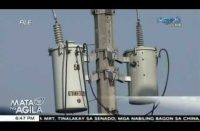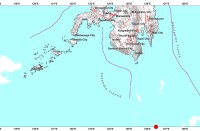(Eagle News) — President Bongbong Marcos said in a World Economic Forum on Tuesday that the Philippines was expected to post a 7% economic growth in 2023.
This is according to the Presidential Communications Office, which said the President made the remark in a presentation during the Country Strategy Dialogue in Davos, Switzerland.
The President reportedly made the statement after citing an International Monetary Fund (IMF) projection of 2.7 percent for the 2023 global economic growth, slower than the 3.2 percent posted last year.
According to the PCO, the President said the Philippines’ “strong macroeconomic fundamentals, fiscal discipline, structural reforms and liberalization of key sectors instituted over the years have enabled us to withstand the negative shocks caused by the pandemic and succeeding economic downturns and map a route toward a strong recovery.”
“We have seen inflation accelerating globally in recent months… We are mindful that while protectionist policies may be appealing, even necessary in the short term, there will ultimately be no long-term winners,” he said in the statement.
The President also joined the call for “all governments to unwind any trade restrictions and reinforce our commitment to the World Trade Organization (WTO) reform.”
He said countries should ensure that sufficient welfare measures are in place to “cushion the impact of elevated inflationary pressures,” especially towards the most affected and vulnerable sectors.
He also underscored the importance of economic and technical cooperation to assist the development of smaller economies and enable their participation, especially those of “small businesses and economic segments with untapped potential in the global economy.”
Digitalization
According to the PCO, the President also said digitalization is also key to long-term economic growth and economic transformation.
“We have begun large-scale deployment of digital connectivity across the Philippines to ensure universal connectivity, particularly in geographically isolated and disadvantaged areas,” he said.
He also noted that government interventions and public-private partnerships should be strengthened to improve access to employment opportunities, while health systems and social protections must be enhanced.
Members of the President’s delegation in Davos include Speaker Martin Romualdez, Finance Secretary Benjamin Diokno, Socioeconomic Planning Secretary Arsenio M. Balisacan, and Trade Secretary Alfredo E. Pascual.







